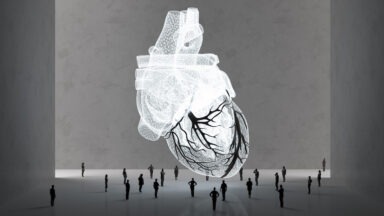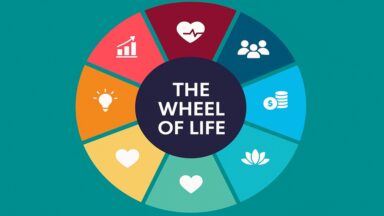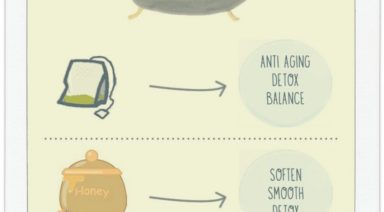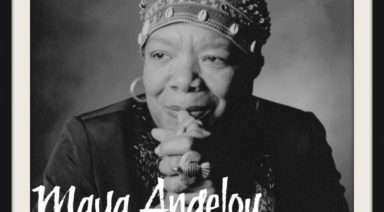Research Shows Gratitude Practices Lower Inflammation

Researchers have uncovered the potential of a daily gratitude practice to heal the body and mind.
While research in the field of positive psychology has shown the clear benefits of positive attributes such as compassion and empathy, new studies suggest that gratitude may have the biggest effect of all.
Dr. Paul Mills has been studying the effects of gratitude as a professor at the University of California San Diego and as Director of Research at the Chopra Foundation.
“The way I define gratitude is, it’s a way of seeing the world with a sense of heartfulness; a sense of embracing-ness; a sense of appreciation for all that is being experienced. Typically people differentiate gratitude from thankfulness — it’s a response in exchange for something. Gratitude really, at its foundation, it’s more of a dispositional set where we walk around with gratitude for everything that’s going, just really the gift of life.”
Over the last several years, scientific studies into the psychological and physiological benefits of gratitude have grown exponentially.
“I think one of the main reasons that research on gratitude has taken off more than other areas that we typically could call positive psychology, is because the findings, the significance, in all the studies is so high and impactful. So many of the studies that have been looking at gratitude find more and more significant effects related to health and wellbeing.”
Some of the more recent studies on gratitude have focused on the physiological benefits to the heart.
“I’ve done a lot of research, with cardiac patients for example, and it was quite significant what we’ve been able to show that those patients who have more of a state of dispositional gratitude and sometimes it’s called ‘carrying around an attitude of gratitude,’ where we feel grateful for pretty much anything and everything going on — despite what it might be to other people’s eyes — that has a profound effect on these patients, they sleep better (and) they have more energy. And we found that those patients who had been doing gratitude journaling had a significant reduction in inflammatory markers in the blood. It was approximately a 23 percent reduction in five different biomarkers of reduction over a two-month period. This is a striking and amazing finding. You would never anticipate anything like that even with medication.”
Other recent studies have shown the important role gratitude plays in mental health.
“When we were studying people who have what’s called ‘Persistent Mental Disorder’ and specifically it was through their recovery process of getting better when they have a kind of acute breakdown. This included people who have depression, major anxiety, bipolar disorder, and schizophrenia, and what we found is that gratitude as well as compassion, as well as a sense of connectedness in the world, very much supported their recovery through this process of getting over their disease and getting back to a stable state.”
Just how does gratitude exert this powerful effect?
“It provides for us a sense of connection with not only ourselves but the world around us. And when we have more of a sense of connection, we feel more at home, we feel less stressed, we feel less depressed. There have been several EEG studies looking at the frequencies of the brainwaves, and there have been some fMRI studies looking at the structure of the brain — just the functional activity of the brain — and it’s very interesting, these studies have been showing, again and again, there are differences. So, gratitude does change the behavior and activity of parts of our brain, and structurally there’s evidence for that too.”
Mills suggests gratitude journaling as a great way to build a regular practice.
“The easiest route would be (to) buy yourself a journal and begin to spend some time every day just writing down things you’re grateful for. Overtime maybe you don’t get to your journal, but maybe just stop and reflect, and have that in your mind, ‘[W]hat am I grateful for?’ That will begin to change your life, I’m convinced of it. The evidence has again and again been shown, and in my own life it’s been very transformative.”
What Are The 8 Real-World Types Of Love?

We can explore the fantasy definitions of love, including Eros, Storge, Philia, Ludus, Pragma, Philautia, and Agape. We can enjoy Robert Sternberg’s 3-component theories of love. Or we get into the down-n-dirty reality of love — the stink of it all. Yeah, let’s do that.
Real-world love is complicated, messy, and it doesn’t often come with instructions. While love can be delicious, nurturing, and near-perfect, it tends to be mysterious and elusive. Love is a tough concept to grasp and even more challenging to attract.
While there have been many brilliant people who have outlined profound concepts on love and relating, here’s my take on The eight Real-World Types of Love:
- Ego Love
Ego Love relationships are born from what other people provide and represent. It’s a self-centered style of love that is most often based on need-fulfillment. When Ego Lovers appear to be full of light and goodness, it’s often because their life requirements are being simultaneously met. If the slightest thing goes wrong or if an ego is pinched, the relationship can collapse in a heartbeat.
When two people are relating from this position, it’s all based on expectations. This is not necessarily bad, but it can be wrought with issues.




































